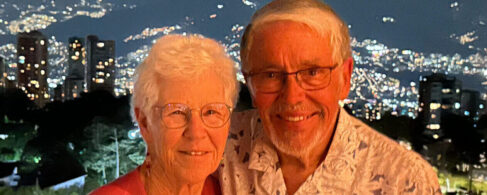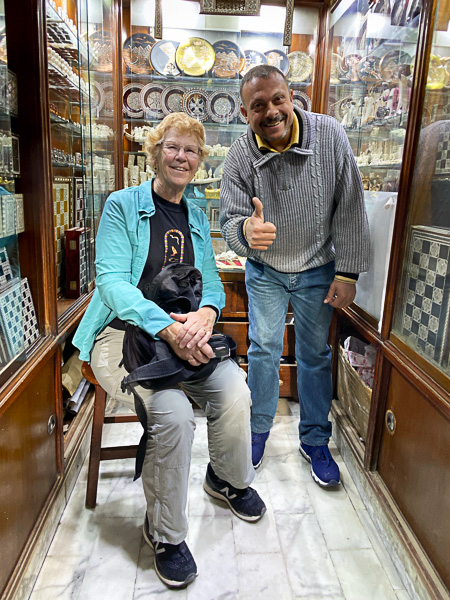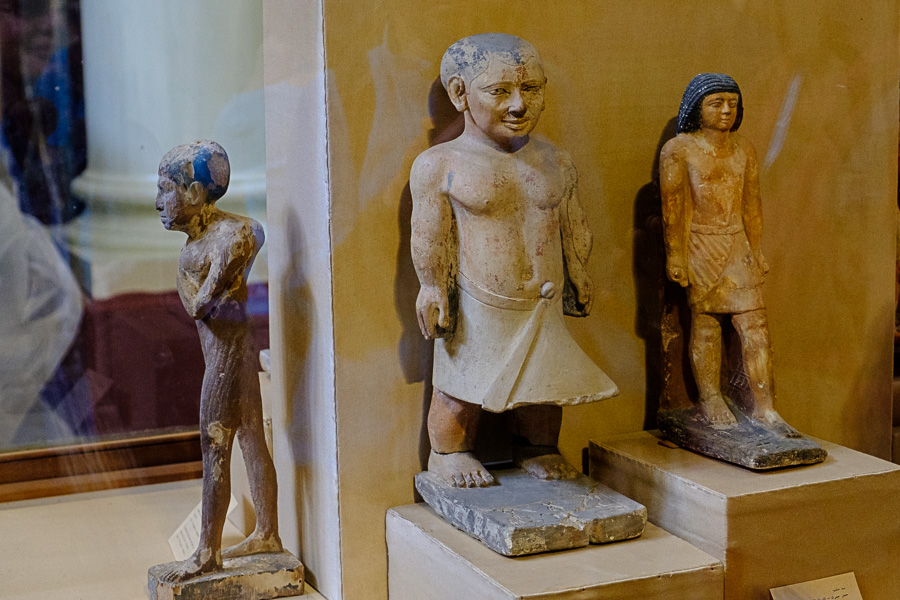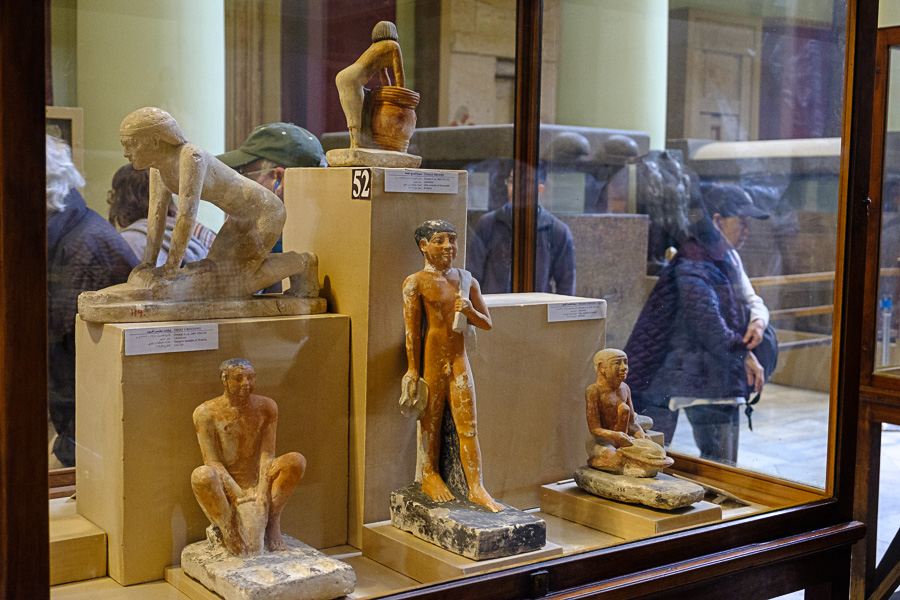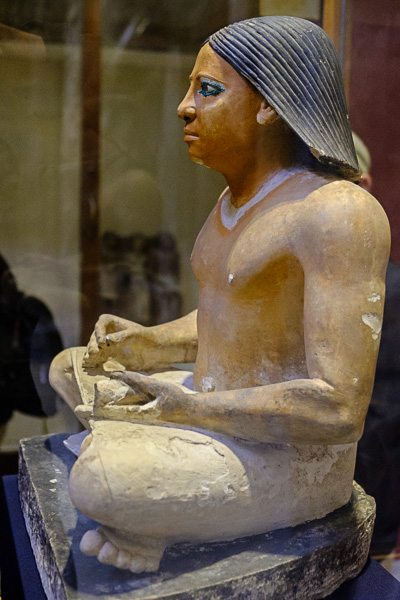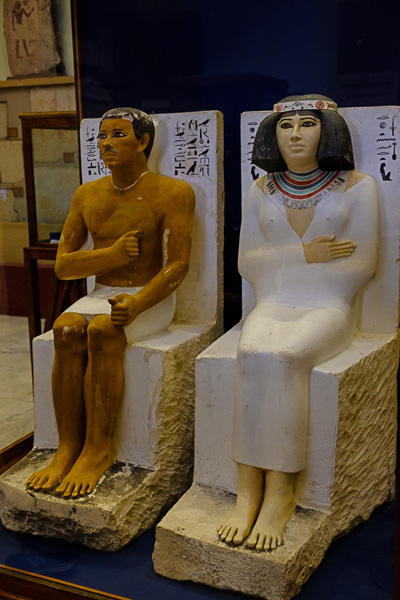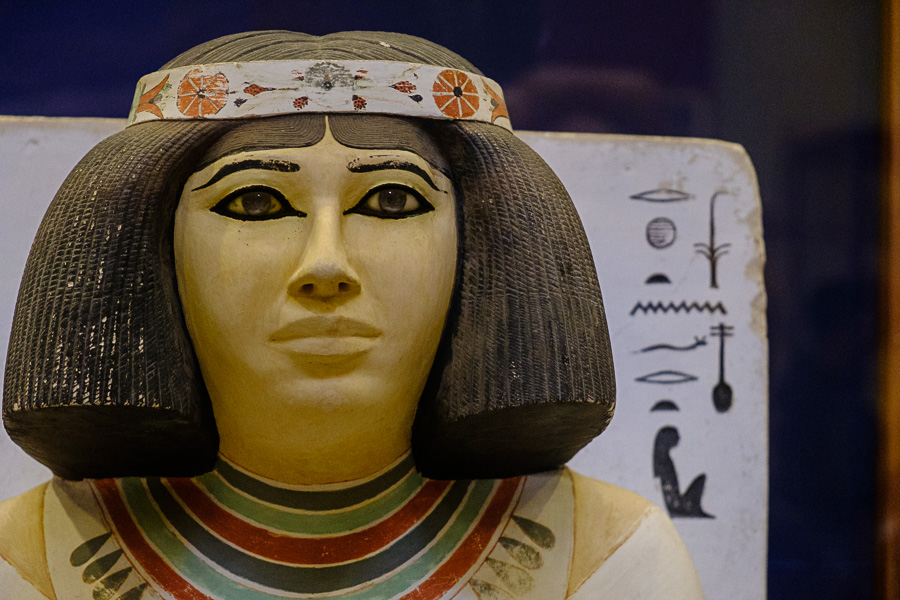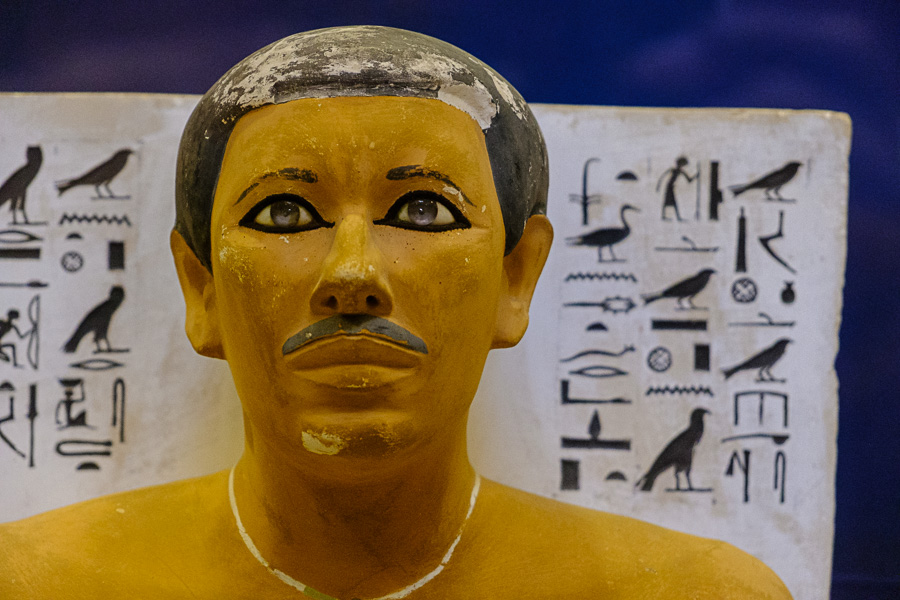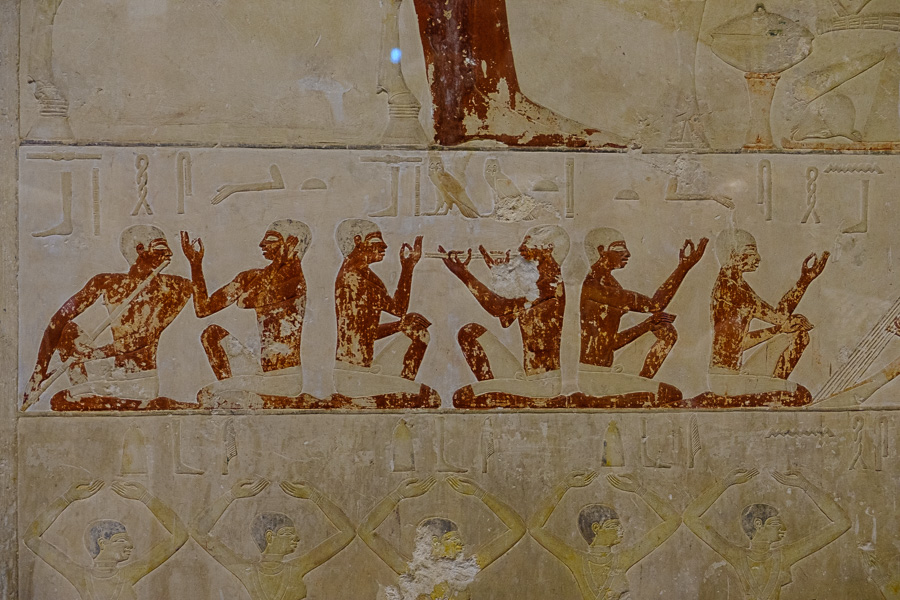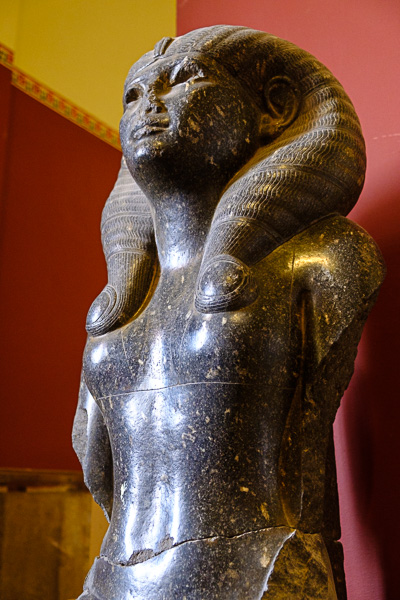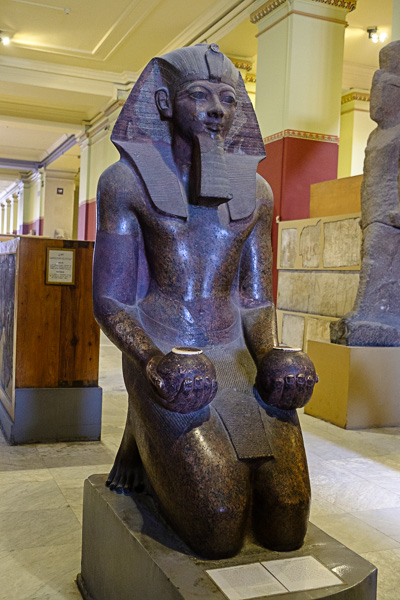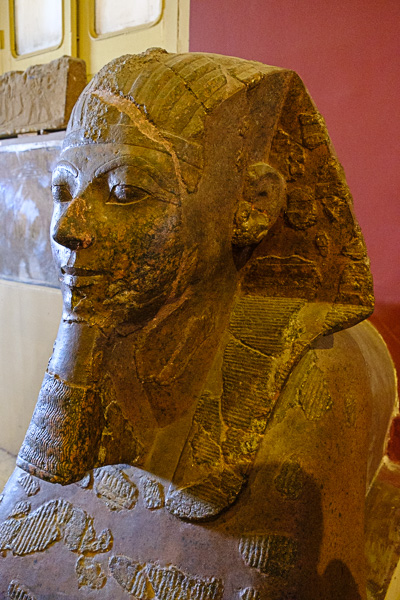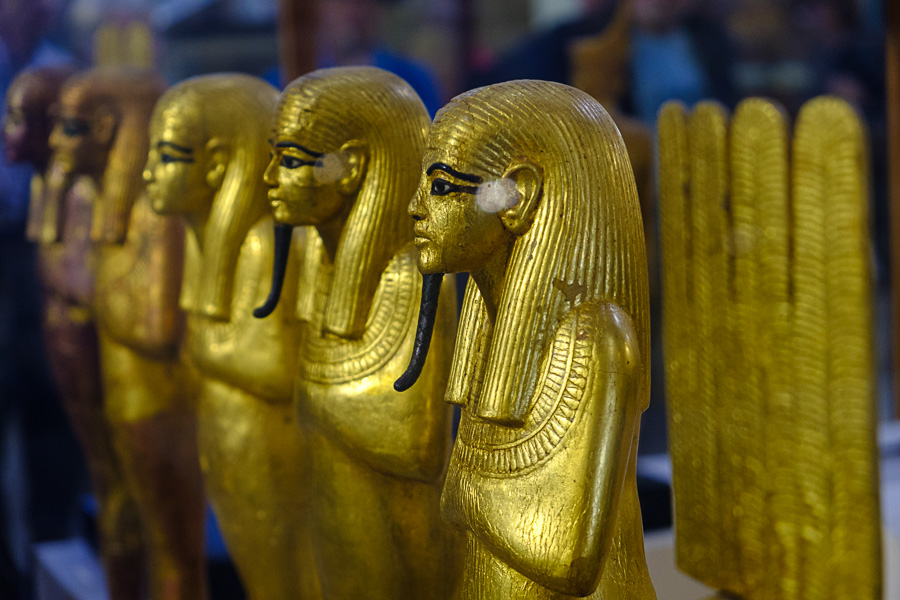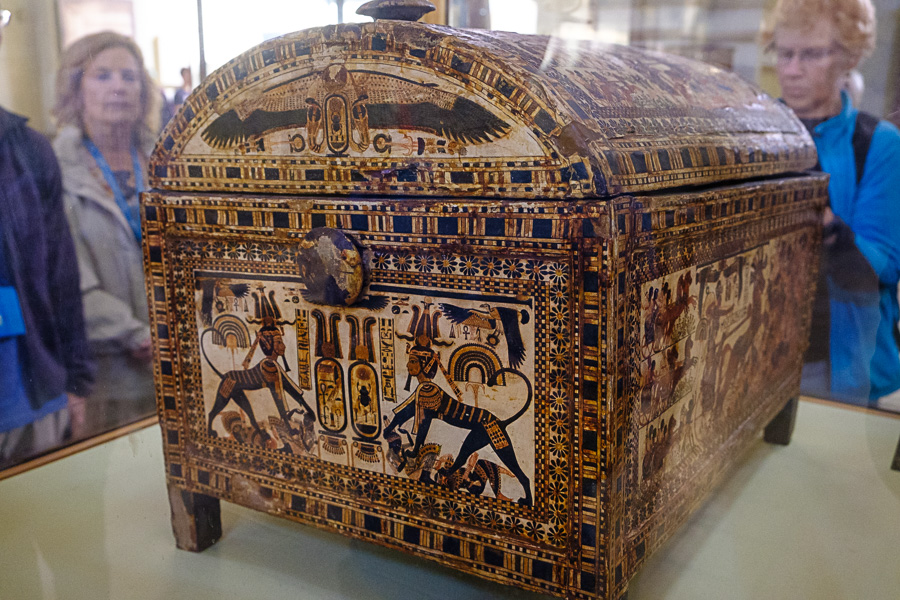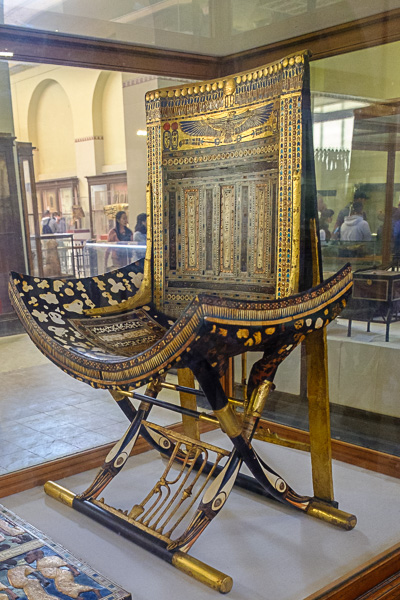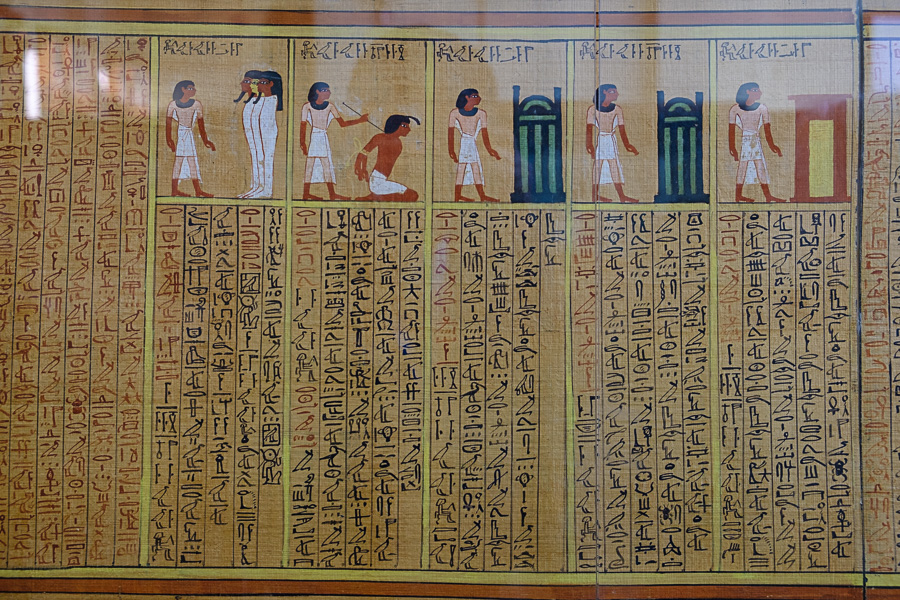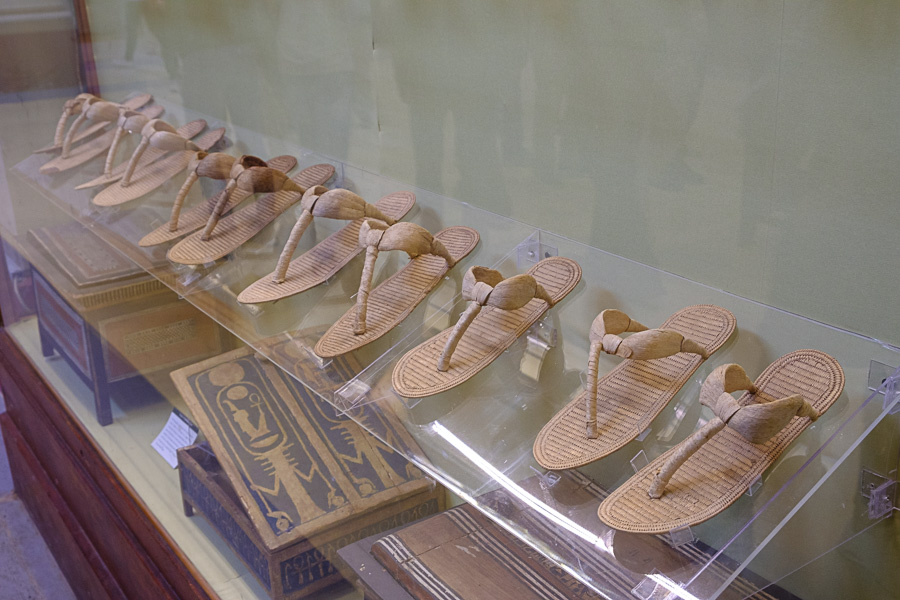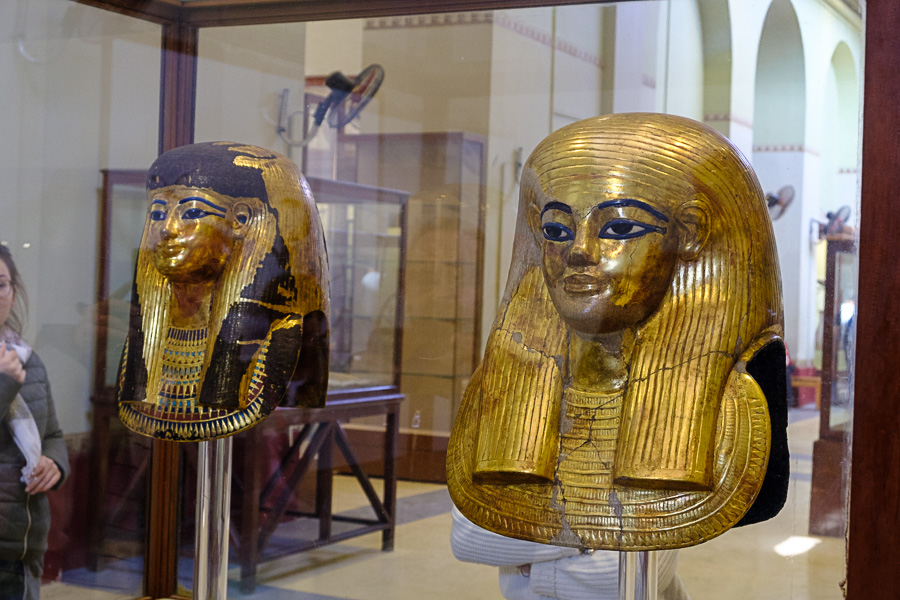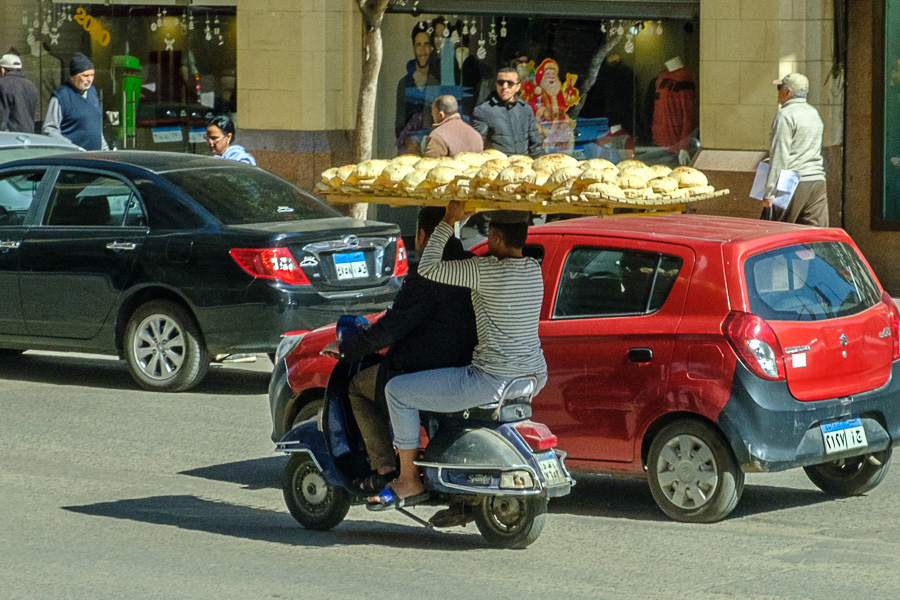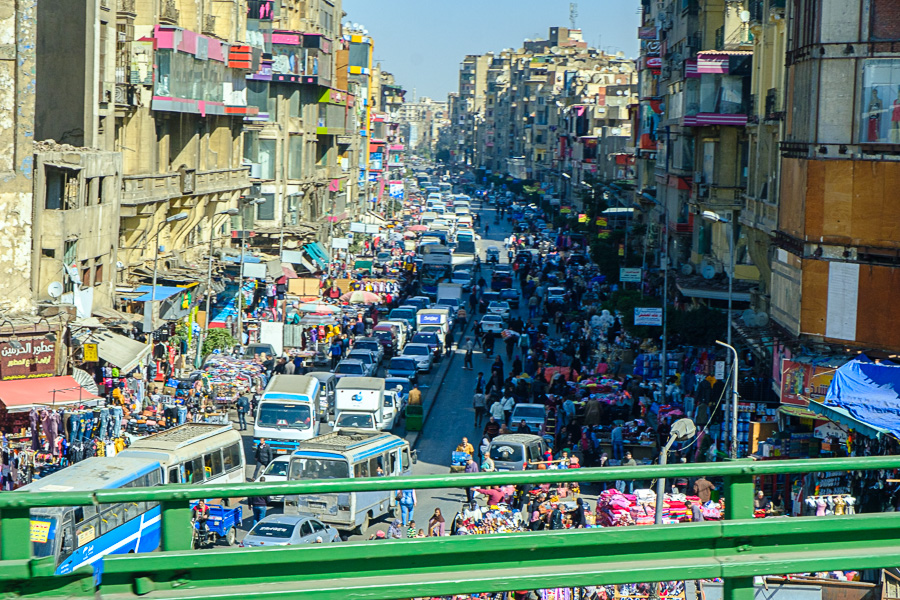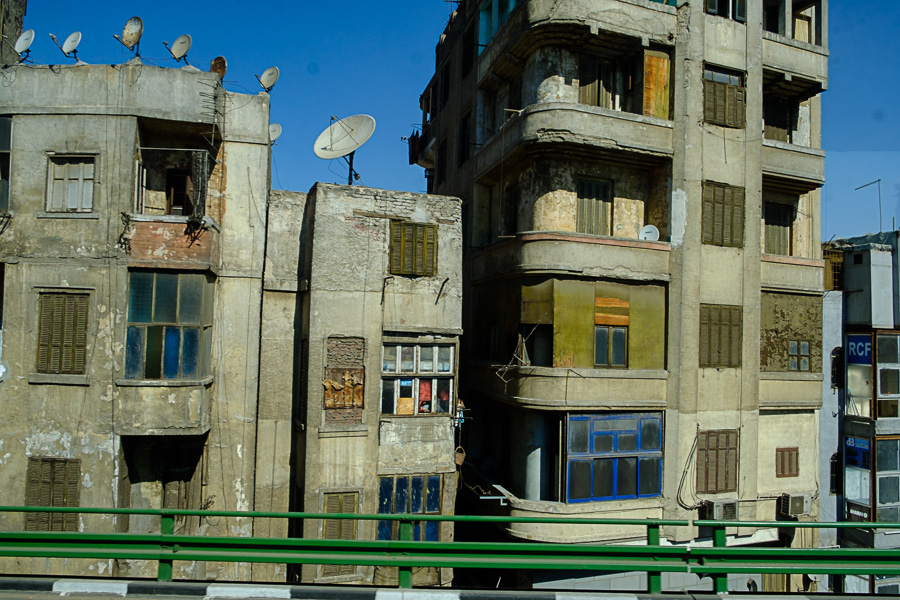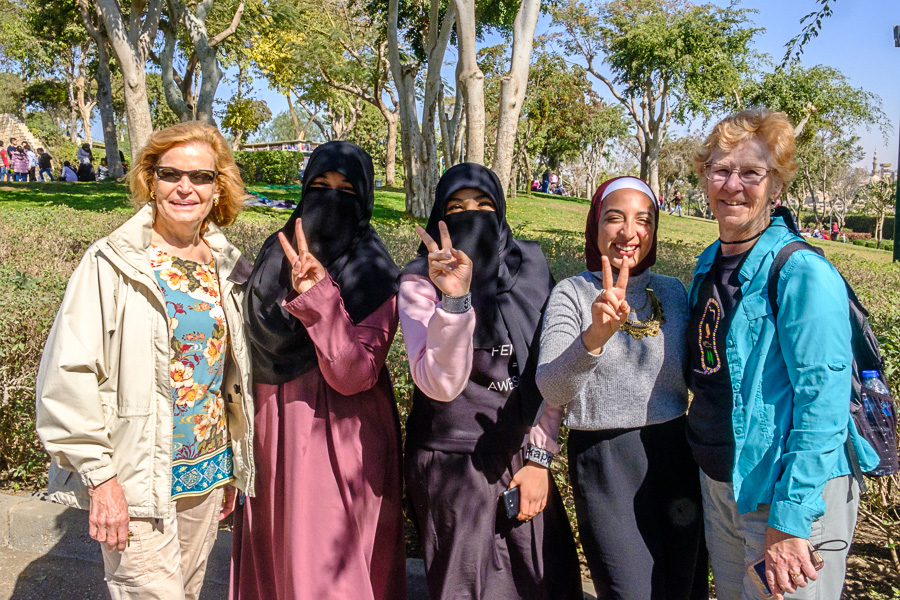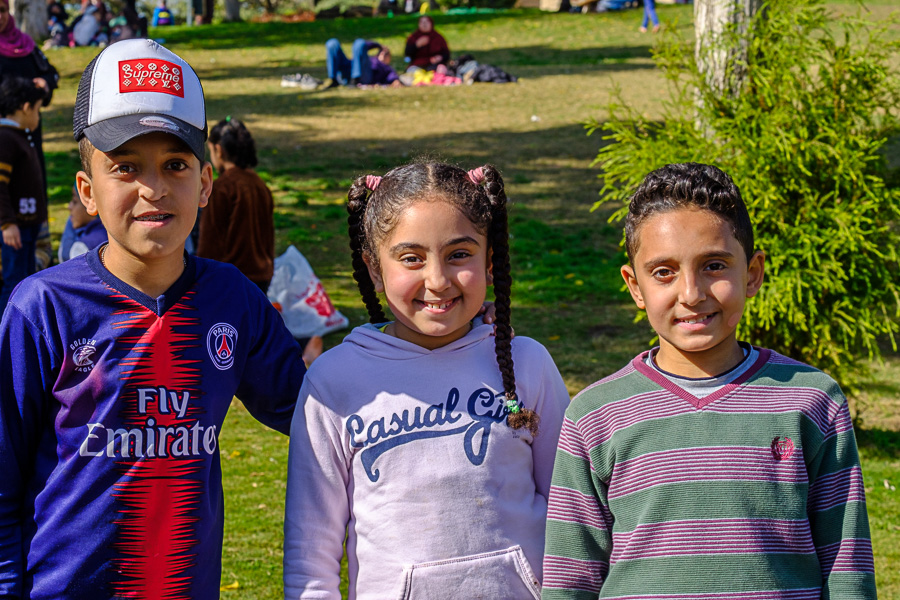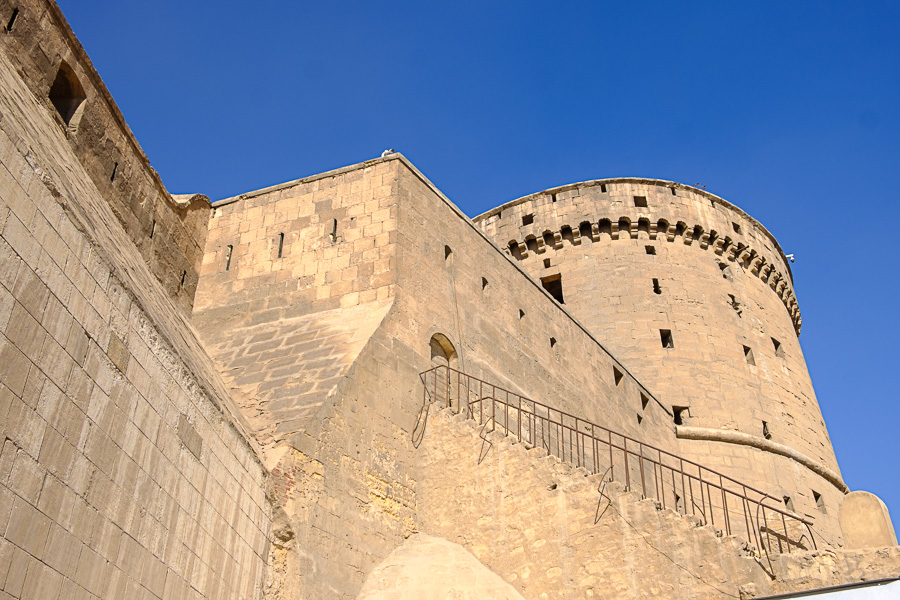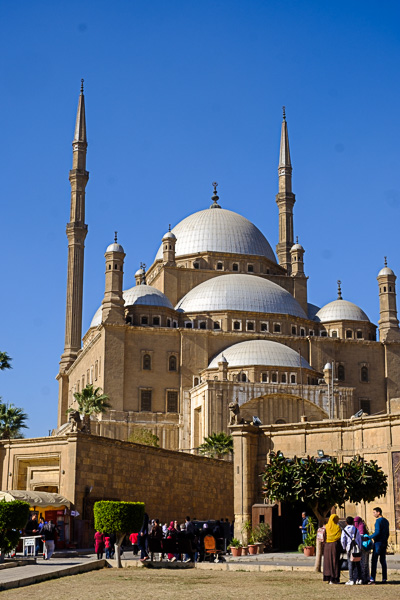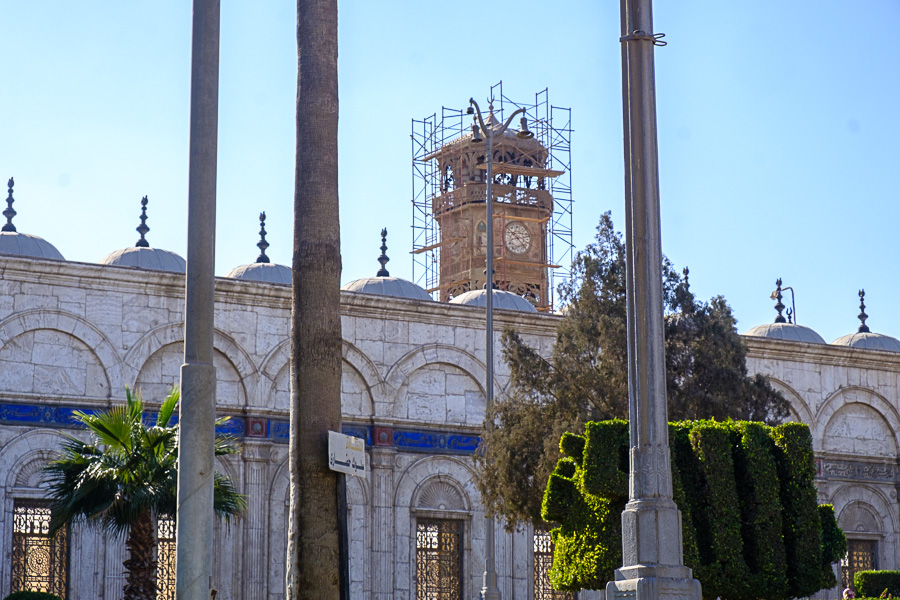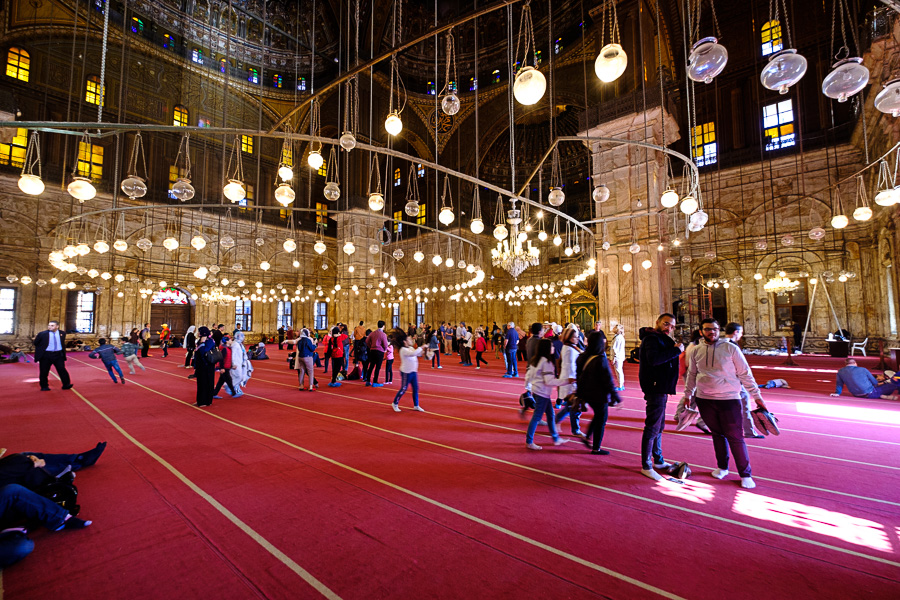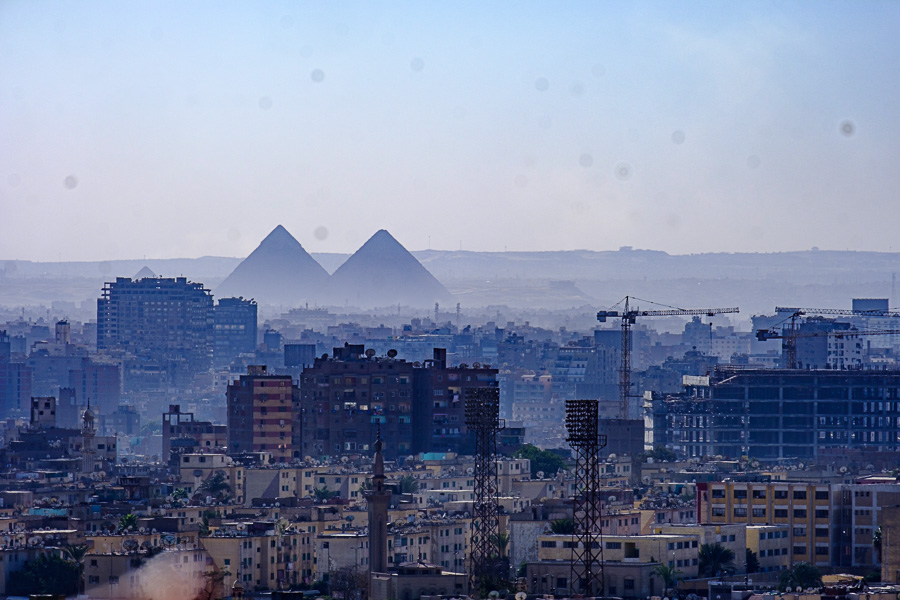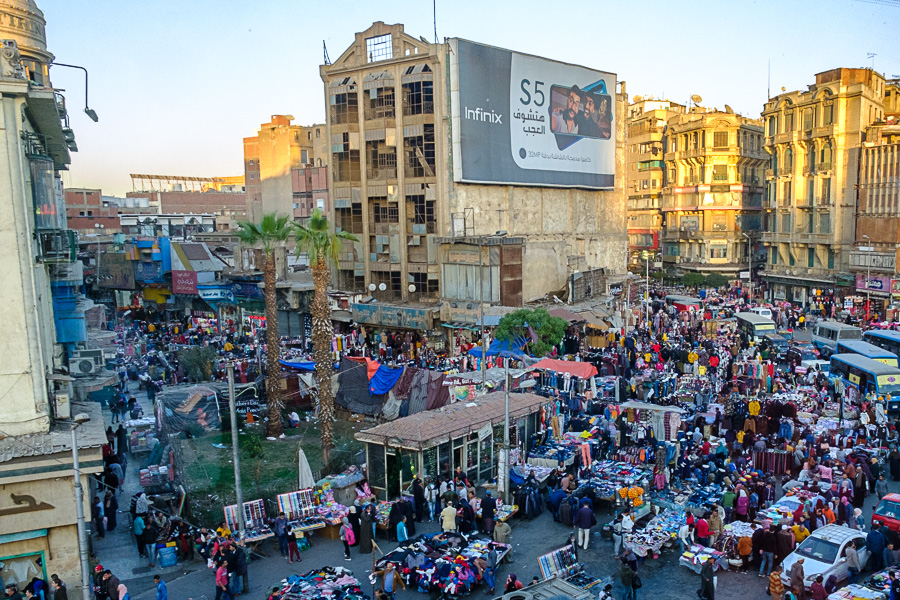“Hi Judy,” called out some Egyptian guy standing in line this morning to enter the Egyptian Museum. “What . . . . ?” Ah yes. He read the cartouche on Judy’s new T-shirt, which spells out “Judy” in hieroglyphics, easy for any self-respecting tour guide to read.
The Egyptian Museum is nothing but a huge warehouse for items found from ancient times. The exhibits are old and dusty looking. Some of the display cases are empty. But the stuff that’s there? Unbelievably fascinating. Works of art, especially the sculptures from the First Kingdom period were exquisite in artistic execution. King Tut? Of course, all his stuff that isn’t touring America right now. Mummies? At least a couple dozen, many with the shrouds removed so you can see the facial features, teeth, hair, toenails. Rosetta stone? Well, sorta. Napoleon B’s savants (wise guys along on his military expedition) found it during his abortive invasion of Egypt, the British took it as booty when they defeated the French and so it’s sitting in the British Museum with a replica on display here (it was a Frenchman who eventually decoded it from a replica). The Namer Palette? Yes, in all its glory. It is a stone tablet dating from the 31st century BCE that is thought to describe how Pharaoh Namer unified South and North Egypt into a single entity. Namer is recognized as the first pharaoh. Anything else? An untold number of artifacts from antiquity.
The new Egyptian Museum is supposed to ready for visitors by the end of this year. I’m not taking odds on that happening but the building is there and so it will happen in the not to distant future.
I wish I had time to label the pictures I took there and describe their significance. Judy recorded most of Hatem’s talk (three hours’ worth) so maybe someday we can consolidate her work and mine. Don’t hold your breath.
Lunch was at a restaurant on a hill overlooking Cairo. Mixed grill with rice, as usual. But the bread . . . three dipping sauces, which I wish I could decipher gastronomically. The bread in Egypt is fantastic. I’m hitting Amazon as soon as we get home and order up an Egyptian cookbook.
Next a complex that comprises a huge fort and a temple, both with historical significance.
The fortification was built by Saladin, the Sultan of Egypt, Syria, parts of Mesopotamia and I don’t know where else. His big claim to historical claim is that he’s the one who drove back the Christian Crusaders in the 12th Century CE. The fortification in Cairo was part of that effort. The Crusaders never made it to Cairo, getting only as far as an area east of Egypt’s Delta region. The Citadel, as it’s called, is today the Military Museum and a Police Museum, housed in the Citadel’s prison. Previously, it served as the seat of Egyptian government from the 13th century into the 19th century.
Also located at the Citadel is the Mosque of Muhamad Ali, built in the mid 1800s. And no, not the boxer, but the man who served as the governor of Egypt and Sudan from the early 1800s. An Albanian, he served under the Sultan of the Ottoman Empire. The throne of Egypt was passed down his blood line to King Farouk, who was deposed in 1965. Without getting deep in the weeds about Muhamad Ali’s life, suffice it to say he is considered the father of modern Egypt. He was greatly impressed with France’s military might during Napoleon’s invasion. He decided to modernize and westernize Egypt by adopting European ways. He was so enthralled with France that he sent one of the obliques from the Luxor Temple to France. Today it sits at the Place de la Concode in Paris. The French, in return, sent him a clock for his bell tower. The clock never worked.
Hatem took us into the mosque, had us sit on the floor where prayers are said on Friday, and told us about his religious beliefs as a Muslim. He believes in all the profits, from Abraham through Moses, Jesus and Muhamad. Muhamad is the last and final profit. The Koran is the ultimate word.
Finally, a stop at a tourist market, much like we’ve seen almost everywhere in Egypt. Nearing the end of our stay in Egypt, Judy and I felt a need for some grandkid presents to round out our collection so far. Of course, bargaining is the name of the game. “How much?” I asked. “!00 Egyptian Pounds.” “Would you take 50?” The salesclerk and the store owner looked at each other in total disbelief. “No way,” they said to each other in obvious Arabic. “Stop, stop,” I said. “You’re bringing tears to my eyes,” said I, wiping an imaginary tear from my eye. We all had a good laugh. “Let’s split the difference,” he said. “80 Egyptian Pounds.” “65,” says i. “70.” “Done.” I probably left a few Pounds on the table but it was worth it.
Judy, Doug, Judith and I just returned from dinner at a Lebanese restaurant a few blocks from the hotel. Great food, but we sat next to a table with two couples. The two thirty-something ladies, ordered up and puffed away on a shisha, exhaling huge clouds of flavored smoke over our table.
But hey, that’s the foreign experience. We’re fed, ready for bed and ready for our final outing in Egypt.
